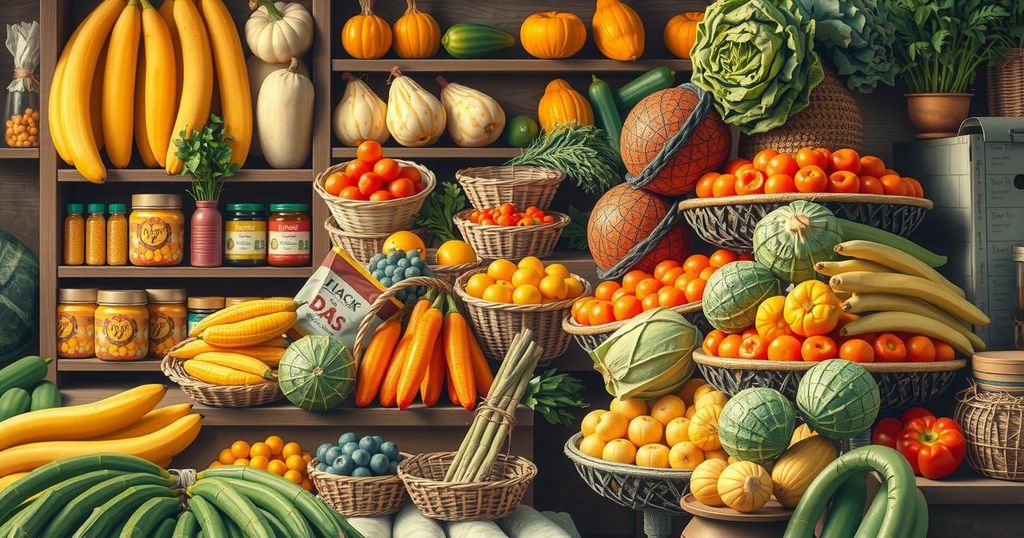Nigeria spent $1.87 billion on food imports in the first nine months of 2024, an increase from $1.64 billion in the same period in 2023. Monthly allocations fluctuated significantly, with notable increases observed in the latter half of the year. The trend highlights reliance on imported food amid ongoing agricultural challenges.
The Central Bank of Nigeria (CBN) has reported that Nigeria allocated $1.87 billion for food imports in the first nine months of 2024, reflecting an increase of $235.11 million compared to $1.64 billion spent during the same period in 2023. This signifies a 14.37% rise in foreign exchange allocations aimed at satisfying local demand for food products.
Monthly fluctuations in foreign exchange allocations for food imports were notable throughout the year. In January, allocations plummeted by 33.08%, decreasing from $245.69 million in 2023 to $164.43 million. However, February exhibited a remarkable recovery with allocations nearly doubling to $303.91 million compared to $163.57 million in the previous year.
The latter half of 2024 witnessed a significant surge in foreign exchange spending on food imports. July saw an impressive increase of 158.82%, where allocations skyrocketed to $149.91 million from $57.91 million in 2023. Following this, August experienced an even steeper rise of 188.51%, reaching $275.04 million, up from $95.33 million in 2023. September also noted a 74.13% increase, with allocations climbing to $208.68 million from $119.87 million the previous year.
Despite the fluctuating nature of forex allocations, the overall expenditure on food imports for 2024 is noticeably higher. The reliance on imported food persists, which highlights ongoing challenges within Nigeria’s agricultural sector, even with various initiatives aimed at enhancing local production capabilities.
In summary, Nigeria’s expenditure on food imports has risen significantly, reflecting both increased allocations and persistent challenges in local agricultural production. The fluctuating monthly foreign exchange allocations indicate the country’s ongoing need to meet local demand despite initiatives aimed at bolstering domestic agriculture.
Original Source: osundefender.com






